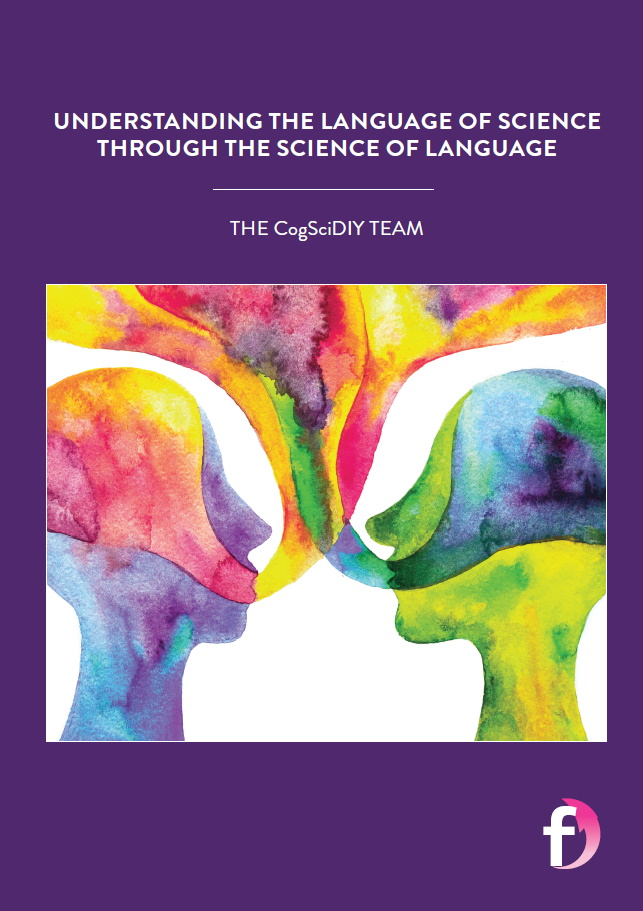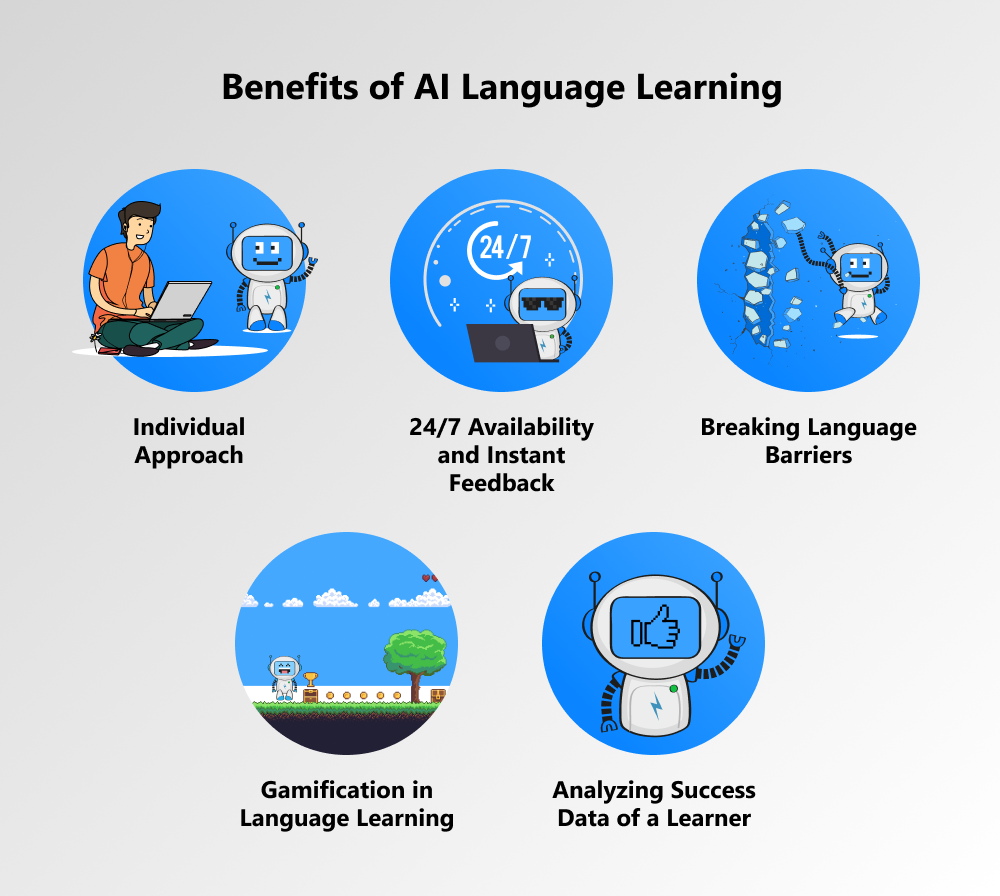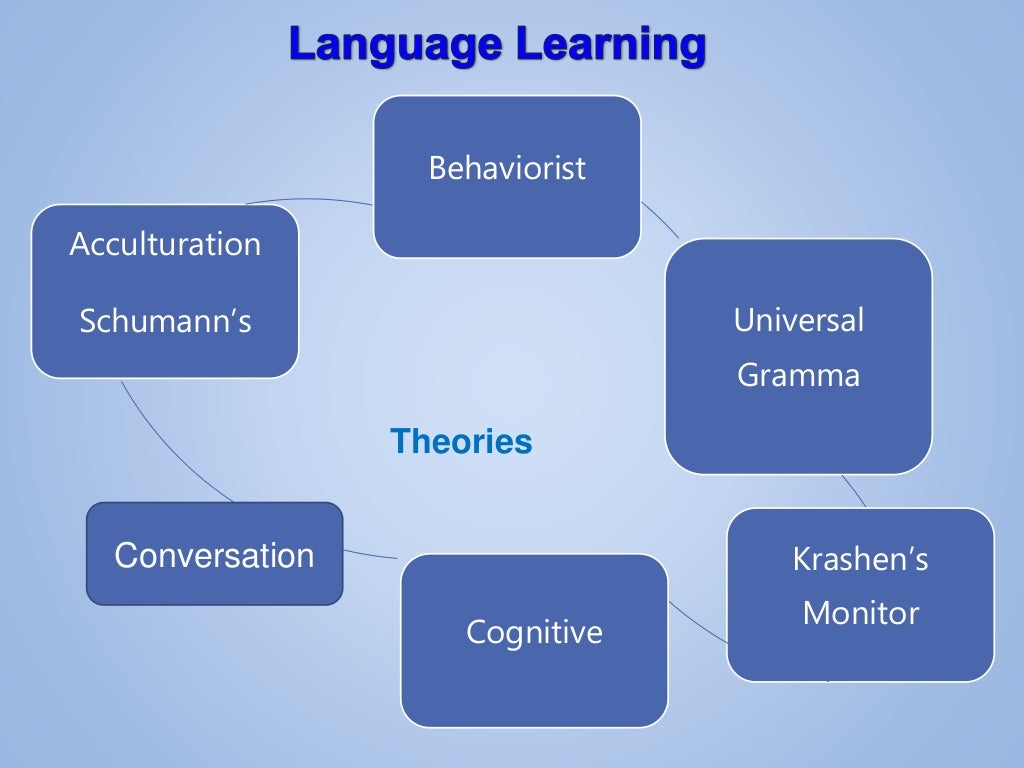
Chapter 20 offers insight on the qualities of assessments that are best able to support learners’ linguistic progress.Schlagwörter:Learn A New LanguageScott H.Schlagwörter:Learning LanguageLearn A New Language
How To Learn A Language
Delivered online over four 1.
The Trifecta of Effective Language Learning
Learners do not just learn “language,” they learn particular ways of using language in particular contexts. Practice Writing Words That Start with Each Letter. Try the Science of . Let’s learn about the science of language.Keep your expectations realistic.
How To Learn a New Language: Benefits, Tips, and More
With the StoryLearning method, you learn languages quickly through stories, not rules.AI systems use different techniques, such as machine learning, neural networks, and natural language processing to understand complex information, recognize patterns, and solve problems. Use the Best Language Learning Apps to Learn a Language Fast. Generally, the term second language in this context can refer to any language (also a third or fourth language) learned in addition to the . The book covers topics such as the history, philosophy, and sociology of science, the role of metaphor, and the discourse of mathematics.Video ansehen10:46You don’t need some special talent or a language gene, says Lýdia Machová.‘ Roy Lyster – McGill University, Montreal ‘This Handbook is an exciting treatise of the vibrant intersections between second language acquisition and language teaching.Schlagwörter:Age and Learning A New LanguageAge Constraints On Language Learning GET THE APP; Learn to THINK in a new language. Speak From Day One.So, let’s review the science of language learning, and four ways you can use that knowledge to your advantage in your language studies. Think of language learning as a workout for your brain. Languages persist through a cycle of learning and use: You learn a language through immersion in the language used in your linguistic community, and in using language to communicate, you produce further linguistic data, which other people might learn from in turn. The Science of Learning a Language; The brain’s plasticity; The (un)importance of age; The obstacles . Halliday poses the question of how a growing child comes to master this kind of language and put it to his or her own use as a means of learning.
How learning a foreign language helps you learn to code
Schlagwörter:Publish Year:2020Language Learning in BrainPing Li, Hyeonjeong Jeong
Language and Learning Science
In this article, we’re going to consider the science-backed benefits of learning foreign languages so that you can figure out how learning can benefit you and help you achieve . tips on how to learn your chosen language on your own .Large Language Models (LLMs) like GPT-4 and Claude 3 are at the forefront of AI, processing and producing human language by drawing on extensive text . To an AI, the global capitalist economy might simply be another . explicit learning and implicit .Natural Language Processing (NLP) A subfield of computer science dedicated to developing algorithms and systems that can understand and generate .

The book is a . AI works by inputting large amounts of training data, which is then analyzed by the program for correlations and patterns.5-hour weekly webinars, you’ll be introduced to the language basis of reading as well as key theories in learning to read. The languages we speak may help shape how we see, smell and hear the world around us. Languages change over historical time as a result of errors and .Repeatedly writing the characters is a good idea for anyone learning a new language, but kinesthetic learners shine when they practice their new characters repeatedly. Learn Using Fun Activities. The Science of Language Learning. Create a “Home Immersion” Situation.In the first major section (immediately below), there is an outline of the extensive past work, with reference to the more significant extant reviews – this section . and how to form a habit to keep on learning your chosen language.
The 8 biggest breakthroughs in the science of learning
Yet, this is what characterizes language learning. In an upbeat, inspiring talk, she reveals the secrets of polyglots (people who speak multiple languages) and shares . Speaking a new language fluently, or even just speaking it well, requires time, energy and motivation. No one wants to be put in the spotlight, especially when talking in a foreign language when the chances of making mistakes are quite high. For example, Me llamo Dylan means My name is Dylan. Language learning requires taking up new habits that you commit to doing every single day.In this section, you will learn how to apply these principles to learn languages with the StoryLearning method. So, grab yourself pen and paper and follow the ideas in the videos. This process is known as neuroplasticity, which refers to the brain’s ability to reorganize and adapt.Schlagwörter:Learning LanguageAuthor:Vaughan PrainPublish Year:2004 So, whereas the traditional perspective viewed the child as a mini .Are you interested in learning a new language? Consider this blog post your one-stop shop for everything you need to know about second-language acquisition. The science supports it: teaching others . Seminal researchers across areas offer . You will understand what is . But as we age, it becomes more and more difficult for our brain to .From this point of view, learning a language is learning the skill of using constructions to understand and produce language. At this first stage of language learning, there are two activities you should focus on above all else.To learn a new language you need to devote quality time to your studies—at least 30 minutes a day is ideal to make some real progress.We’ve already seen that in games based on competition and game theory, AIs will deceive humans. We discuss the brain mechanisms underlying speech, language learning and comprehension, . melitas/iStockGetty Images . This is a great tip for building vocabulary while learning the new script. Discover the immerse mobile experience designed . Set a specific goal. According to market research, the global e-learning market is projected to reach $325 billion by 2025, with language learning being one of the fastest-growing segments.Wondering how to learn a language? Courses, books, apps or language trips – each language learning method has their advantages and disadvantages.Five steps to habit building for effective language learning. When anyone is learning a second language, their brain has to develop new synapses .So, delve into another language and give your brain a good workout to strengthen your memory.
Second Language Learning
Practice online on . Languages are always learned in specific socio-cultural contexts.Second language learning (SLL) is concerned with the process and study of how people acquire a second language, which is often referred to as L2 or target language, as opposed to L1 (the native language).By examining the language outcomes of a large sample of learners who have learned three languages consecutively from birth, in early childhood, and in .Behind the Scenes.Your study experience.Discover the neuroscience and cognitive theories behind our hyper-effective language-learning method for tips, tricks, and brain hacks to learn any language.Schlagwörter:MediumTrifecta of Effective Language Learning
How do I assess language learning?
Whether it be on how specific languages are acquired by learners from certain linguistic and cultural backgrounds, investigating the development of language .

Step 2: Put the Blocks Together. Primary activity: learning the sounds of the language / pronunciation.This free course, How to learn a language, is for anyone thinking of learning a language. Studies show it helps form new connections between neurons and strengthens nervous system links. But it shouldn’t be hard to do that if you’re doing it together: your studying won’t really be studying, it’ll be spending quality time with your partner.Schlagwörter:Teaching LanguagePublish Year:2020Author:Deoksoon Kim Accuracy first. It Boosts Your Self-Esteem.Stage 1: 0 – 100 Words. To do this, you follow a simple three-step process: Step 1: Immerse – Immerse yourself in the language with a story.learn a language with duolingo. Chapter 11 provides an overview of the terms for talking about grammar instruction and learning, including implicit learning vs.L4L theory of language learning.
How learning a new language changes your brain
Translation was the classical approach to teaching languages. You’ll also gain knowledge of evidence-informed instruction and support for use in your classroom, clinic, or home.Schlagwörter:Learning LanguageAndy Orin
The Role of Language in Science Learning and Literacy
Instead of teaching language as if it were just a collection of grammar and vocabulary, we need to .A Neurological Perspective on Language Learning
The secrets of learning a new language
Culture affects communication When you have a quick sense of achievement, you’ll be more motivated to continue learning. Firstly, you need to learn how to make the sounds of your target language. More than 7,000 languages are spoken around the world today, shaping how we describe and perceive the world around us. On the occasion of the 40th anniversary of the journal, we have put together an extensive reading list of the latest articles in language teaching and learning published in Applied Linguistics since 2016 to showcase new research in this .The science of language learning? Children have a natural instinct to learn a new language. Academic language is designed to be concise, precise, and authoritative.
Encyclopedia of the Sciences of Learning
To start with, it helps to set small, realistic goals (for example, learning how to order a drink on vacation).

To get the perfect accent, start before 10.Schlagwörter:Learning LanguageTeaching Language
Reasoning skills of large language models are often overestimated
For many kids, starting to learn a second language before the age of 7 means it can be internalized like a “native” tongue, with little noticeable skill difference from the language they heard as a baby, as long as they continue to be immersed in both throughout childhood.Languages persist through a cycle of learning and use: You learn a language through immersion in the language used in your linguistic community, and in . If you’re a teacher, you’ll be familiar with this: you never understand something as well as after having taught it.
Fluent Forever Blog
As children, we learn to think, learn to communicate and intuitively pick up an understanding of grammar rules in our mother tongue, or native language.The National Science Education Standards (NRC, 1996) asserted that science literacy entailed the development of educated citizens who can “engage intelligently in public .The focus on language learning in a wide range of settings is admirable and the leitmotif of language teaching is a welcome theme. Students were given vocabulary lists and grammatical rules and expected to .This article develops a conceptualization of language pedagogy that engages the whole student.In this paper, we advocate an approach to study the social brain of language by grounding second language learning in social interaction. The total time commitment will be up to 15 hours.Schlagwörter:Learning LanguagePublish Year:2021 In subsequent chapters, Halliday explores the relationship between language, education and culture, again taking the language of science as the focal point for the discussion; and finally he draws these .

language and its speakers, and how learning a new language can broaden one’s perspectives and provide a gateway to new ways of thinking and experiencing the world.
How Learning a Language Changes Depending on Your Age
The Science of Language Learning and How It Applies to You
It’s 100% free, fun and science-based. Cambridge Spiral eReader. Whether it is the first time you are venturing into language learning, or if you have already started, this course will show you how to keep motivated, set your own goals, and develop strategies to learn a language. There’s no real understanding of grammar yet, but you start to understand that words go together to create more complex meaning. These daily practices lead you on a journey of small achievements, which deliver you to your ultimate goal: Learning a new language.This might seem like a strange connection, but the science behind the data makes a lot of sense.Schlagwörter:Learn A New LanguageAge and Learning A New Language
The Art and Science of Language Teaching
A major challenge to students learning science is the academic language in which science is written. Secondary activity: word selection.Schlagwörter:Learning LanguageLearn A New Language
How Learning a Language Changes Depending on Your Age
When users interact with language models, any arithmetic is usually in base-10, the familiar number base to the models.The Encyclopedia of the Sciences of Learning provides an up-to-date, broad and authoritative coverage of the specific terms mostly used in the sciences of learning and its related fields, including relevant areas of instruction, pedagogy, cognitive sciences, and especially machine learning and knowledge engineering. But observing that they do well on base-10 .Let’s learn about the science of language.Learning happens best through teaching: Breakthrough in the science of learning # 8. My guest is Eddie Chang, MD, a neurosurgeon and professor of neurological surgery at the University of California, San Francisco (UCSF) and the co-director of the Center for Neural Engineering & Prostheses.
Five Steps to Building Effective Language Learning Habits That
Back to; The Science of Language Learning. This modern compendium will .Statistics reveal that fluency in in-demand languages such as Mandarin, Spanish, and Arabic significantly increases employability and offers access to global job markets.tips on how to work out which language might be the best one for you.Neuroscientists and linguists have long understood that processing language is one of the most complex things the brain can do, and while some of the . ideas how to try out some of the languages you might want to learn. The next step in learning a foreign language is putting words together. Enhanced Cognitive Abilities. Duolingo is the world’s most popular way to learn a language.Schlagwörter:Acquire A Language Ted Talk YoutubeLanguage Learning Video

Halliday, who explores how language functions as a social semiotic system to construct scientific knowledge.Language teaching and learning remains central to Applied Linguistics as an academic journal and as a field of enquiry. We discuss the principles of how to learn a .This paper presents a review of literature on language in science, with specific focus on research on the pedagogical functions of language in South African .The language of science is a collection of essays by the renowned linguist M.
- Weinhaus bultmann speisekarte | weinhaus bultmann öffnungszeiten
- Secondaire ou principale, quelle est votre résidence fiscale: résidence fiscale secondaire ou principale
- Pur : pur was ist passiert
- Grundsteuer: höhe, wie oft sie entrichtet werden muss und wann sie _ wann muss man grundsteuer fällig machen
- Edeka eiweißbrot: preis, angebote, kalorien : eiweißbrot selber backen edeka
- What is a dictionary dataset? | data dictionary example
- Sigma dc 18-200 mm 1:3.5-6.3 _ sigma 18 200 l mount
- Distributed ledger technologie • definition – unterschied dlt und blockchain
- Hatte jesus eine familie? – wer waren jesus geschwister